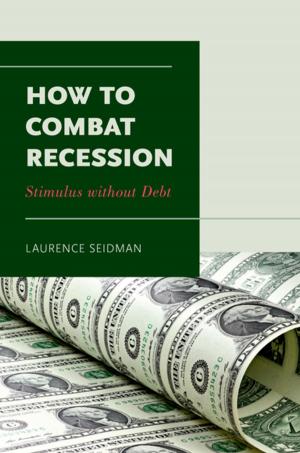The Oxford Handbook of Venture Capital
Business & Finance, Finance & Investing, Investments & Securities, Career Planning & Job Hunting, Entrepreneurship, Entrepreneurship & Small Business| Author: | ISBN: | 9780199942619 | |
| Publisher: | Oxford University Press | Publication: | April 20, 2012 |
| Imprint: | Oxford University Press | Language: | English |
| Author: | |
| ISBN: | 9780199942619 |
| Publisher: | Oxford University Press |
| Publication: | April 20, 2012 |
| Imprint: | Oxford University Press |
| Language: | English |
Venture capital (VC) refers to investments provided to early-stage, innovative, and high growth start-up companies. A common characteristic of all venture capital investments is that investee companies do not have cash flows to pay interest on debt or dividends on equity. Rather, investments are made with a view towards capital gain on exit. The most sought after exit routes are an initial public offering (IPO), where a company lists on a stock exchange for the first time, and an acquisition exit (trade sale), where the company is sold in entirety to another company. However, VCs often exit their investments by secondary sales, wherein the entrepreneur retains his or her share but the VC sells to another company or investor buybacks, where the entrepreneur repurchases the VC`s interest and write-offs (liquidations). The Oxford Handbook of Venture Capital provides a comprehensive picture of all the issues dealing with the structure, governance, and performance of venture capital from a global perspective. The handbook comprises contributions from 55 authors currently based in 12 different countries.
Venture capital (VC) refers to investments provided to early-stage, innovative, and high growth start-up companies. A common characteristic of all venture capital investments is that investee companies do not have cash flows to pay interest on debt or dividends on equity. Rather, investments are made with a view towards capital gain on exit. The most sought after exit routes are an initial public offering (IPO), where a company lists on a stock exchange for the first time, and an acquisition exit (trade sale), where the company is sold in entirety to another company. However, VCs often exit their investments by secondary sales, wherein the entrepreneur retains his or her share but the VC sells to another company or investor buybacks, where the entrepreneur repurchases the VC`s interest and write-offs (liquidations). The Oxford Handbook of Venture Capital provides a comprehensive picture of all the issues dealing with the structure, governance, and performance of venture capital from a global perspective. The handbook comprises contributions from 55 authors currently based in 12 different countries.















